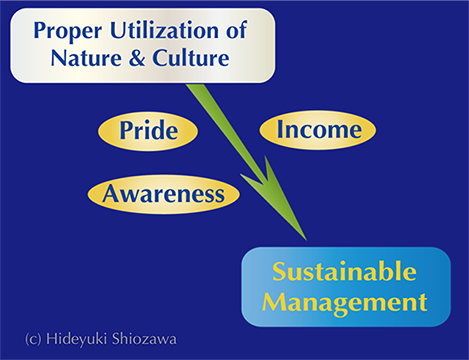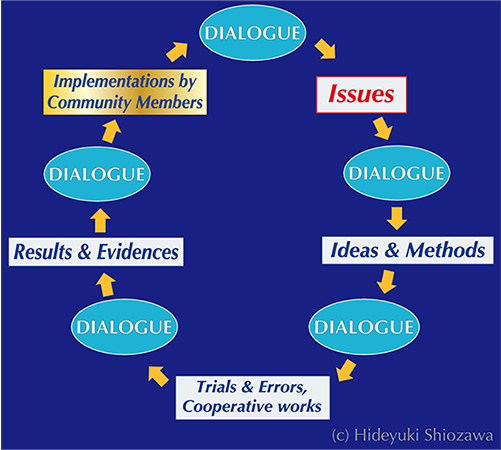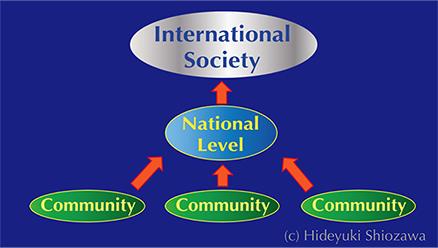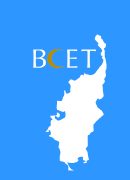Concept of Community Based Eco Tourism
1. Ownership of resources in Palau
Under the Palau constitution Article 1. Section 2., "Each State shall have exclusive ownership of all living and non-living resources, except highly migratory fish, from the land to twelve (12) nautical miles seaward from the traditional baselines; provided, however, that traditional fishing rights and practices shall not be impaired."
2. Proper Utilization of Resources
Proper utilization of natural and cultural resources conduces pride, income, and awareness to community members. Consequently, the community members will be able to make practical efforts for sustainable conservation of such resources for future generations.

3. Balancing Economic Benefit and Conservation/Protection
One of the key goals in the community based eco-tourism is to realize a balance of economic benefit to community members by tourism and sustainable conservation and protection of natural and cultural resources. Hence, mass tourism is not the target. Each tour is designed by community members for eco-conscious and responsible tourists with fair price commensurate with their exclusive experience in each community.

4. Revisiting livelihood, nature, culture, mythologies.
In the community based eco-tourism, we do not have to built any new facilities. Community members revisited existing nature, culture, mythologies and their daily lives through community workshops for making phenology calendars and found values in them. The phenology calendars were introduced by Dr. Akio Maita in Japan and the Sasakawa Peace Foundation developed them into "Eco-Tourism Calendar" reflecting lunar phases.

5. Planning Eco-tours
Community members of participating states picked up some interesting assets from Eco-Tourism Calendars based on their enthusiasm to share with respectful visitors. In accordance with time frames, half day, whole day, whole day and homestay, community members designed eco-tour plans by connecting each assets by themes, stories, histories, mythologies, and so on. Local guides, who are not professionals but grew up and inherited stories in each community, will guide tourists all the way in each eco-tours.

6. Cycle Dialogue Method - People Centered Approach
Since the Sasakawa Peace Foundation started the environmentally conscious tourism project in Palau in 2016, it shared ideas and methods through dialogues at any levels. The procedure was named Cycle Dialogue Method. As a result, the community members of participating states take all the initiatives for the BCET-Babaldaob Community Eco Tours.

7. Bottom-Up Approach
The community based eco tourism is not directly linked to climate change. However, community members will monitor the environment closely through this tourism and they will find any chages of it. We believe that such findings will be brought up to national level from communities and be shared in the international society for raising awareness.




